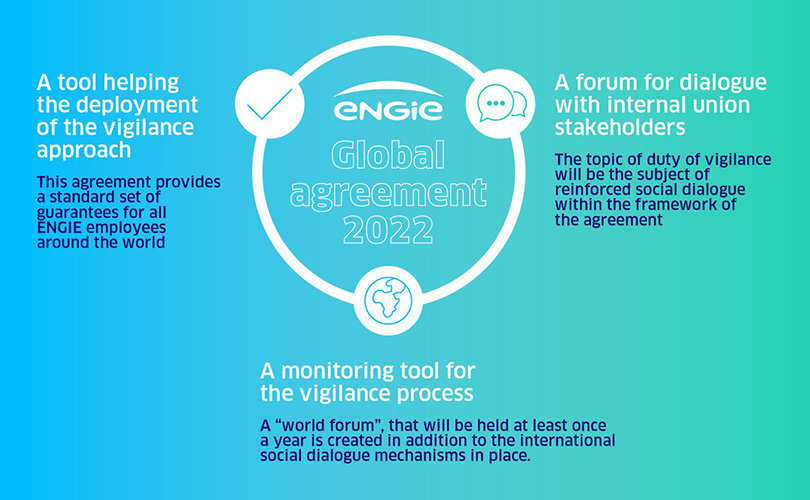Back to the main page of ENGIE's vigilance plan
Association with internal stakeholders at both Group and local level
ENGIE’s vigilance plan and its operational implementation are regularly presented and discussed with the employee representative bodies and representatives, via the existing committees: the Group European Works Council. Moreover, the plan is presented to the Ethics, Environment and Sustainable Development Committee which reports to the Board of Directors.
It is also requested from entities to present the vigilance plan and the obligations arising from the law to their Executive committees and employee representative organisations or directly to employees.
Global agreement on fundamental rights and social responsibility
ENGIE signed, on January 20, 2022, with the global trade union federations (GUF) BWI, IndustriALL and PSI, as well as with representative French trade unions at ENGIE level (CFDT, CFE-CGC, CGT and FO), an agreement on fundamental rights and social responsibility. The agreement is in line with the global agreement signed in 2010.
The Global agreement is a tool to help the deployment of the vigilance approach. Within the framework of this agreement, ENGIE's duty of vigilance is the subject of a strengthened social dialogue: working group discussions were organized with the Global trade union federations (GUF) since 2022. The “Global Forum”, a body that monitors the global agreement implementation, meets once a year. Also, each year, a meeting is held with the international trade union federations to discuss the draft Vigilance Plan prior to its publication. These discussions also allow us to monitor the vigilance approach in consultation with the social partners.
Generally speaking, the Group has been striving for several years to strengthen the culture of social dialogue at all levels of the organization (local, national, European, global), particularly in relation to working conditions, including health and safety at work.

